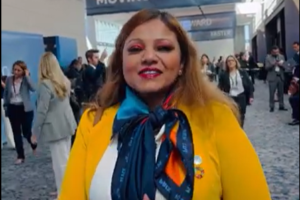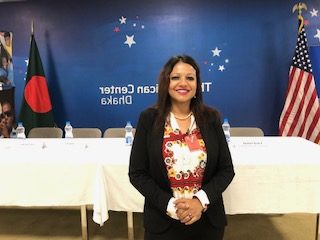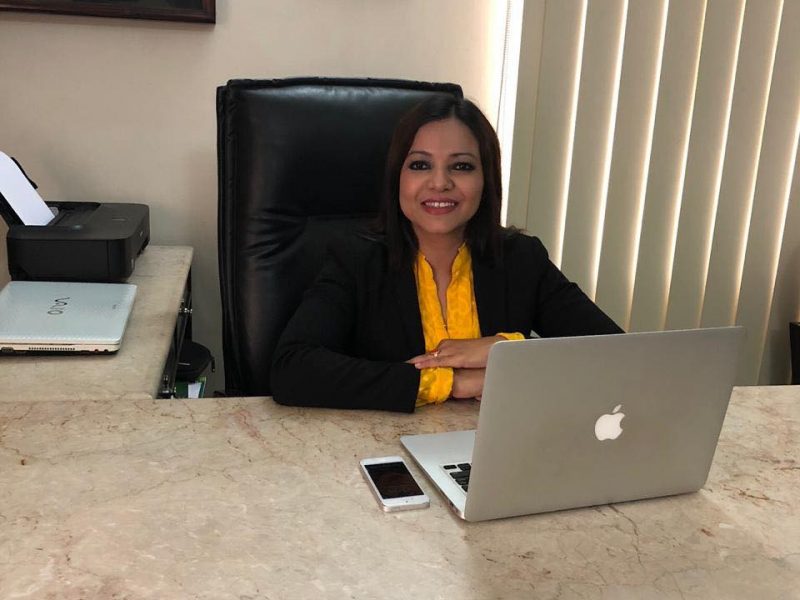President Donald Trump used his final hours in office early Wednesday to wipe away convictions and prison sentences for a roster of corrupt politicians and business executives and bestow pardons on allies like Steve Bannon, his former chief strategist, and Elliott Broidy, one of his top fundraisers in 2016.
The wave of clemency grants, hours before Trump’s departure from the White House, underscored how many of his close associates and supporters became ensnared in corruption cases and other legal troubles, and highlighted again his willingness to use his power to help them and others with connections to him.
His decision to grant clemency to a raft of elected officials and business executives caught up in high-profile corruption cases also represented a final lashing out by Trump at a criminal justice system that he had come to view as unfairly hounding him and his allies. It came as the Senate prepared for his second impeachment trial, on a charge of inciting the deadly riot at the Capitol this month, and could be another factor in influencing whether Republicans join Democrats in voting to convict him.
Trump retains the power to issue further pardons — including theoretically for himself and members of his family — until noon Wednesday, when his four-year tenure comes to an end. But officials said they did not anticipate him doing so.
The latest round of pardons and commutations — 143 in total — followed dozens last month, when Trump pardoned associates like Paul Manafort and Roger Stone, and four Blackwater guards convicted in connection with the killing of Iraqi civilians.
Bannon was under indictment on charges that he misused money he helped raise for a group backing Trump’s border wall but had not yet gone to trial. Broidy pleaded guilty last year to conspiring to violate foreign lobbying laws as part of a covert campaign to influence the Trump administration on behalf of Chinese and Malaysian interests.
Among others receiving pardons from Trump were three prominent Republicans who had served in the House before their convictions. They were Rick Renzi, who was sentenced in 2013 to three years in jail in association with a bribery scheme involving an Arizona land swap deal; Robert Hayes of North Carolina, who pleaded guilty in 2019 to lying to the FBI; and Randall “Duke” Cunningham of California, who pleaded guilty in 2005 to taking $2.4 million in bribes from military contractors.
Trump commuted the sentence of Kwame Kilpatrick, a Democrat and former Detroit mayor who was convicted in 2013 for using his office to enrich himself and his family through shakedowns, kickbacks and bid-rigging schemes.
And Trump commuted the sentence of William Walters, a wealthy sports gambler. A jury convicted Walters in 2017 on charges related to his role in an insider-trading scheme, and he was sentenced to five years in prison.
Walters hired Trump’s former personal lawyer John Dowd in 2018, after he stopped representing Trump, The New York Times reported this week. Dowd bragged to Walters and others that he could help them receive a pardon because of his close relationship with the president.
Dowd had also said that Trump would look favourably upon those who had been investigated by federal prosecutors for the Southern District of New York in Manhattan, an office that the president has long viewed as hostile to him and that has been involved in other investigations touching on him and his allies, according to two people briefed on the matter. Walters has paid Dowd tens of thousands of dollars to represent him, the people said.
The pardon of Bannon was particularly notable because he had been charged with a crime but had yet to stand trial. An overwhelming majority of pardons and commutations granted by presidents have been for those convicted and sentenced.
The White House had planned to release the list of those granted clemency on Tuesday, but the debate over Bannon, who encouraged Trump publicly to fight the certification of the 2020 election, was part of the delay, officials said.
By late afternoon Tuesday, advisers believed they had kept a pardon for Bannon from happening. But by about 9 p.m., Trump had changed his mind and Bannon was added to the list.
Trump and Bannon spoke by phone during the day as the president was weighing the pardon, as Bannon’s allies tried to apply pressure to make it happen and his detractors pushed the president not to go ahead with it.
Among other things, Bannon has been a frequent antagonist of the Republican leader in the Senate, Sen. Mitch McConnell of Kentucky, who has blamed Trump for stoking the riot at the Capitol on Jan 6. McConnell has left open the possibility of voting to convict Trump in the upcoming Senate impeachment trial.
Trump’s decision to grant Bannon a pardon is the latest twist in a complicated relationship between the two men that started during the 2016 presidential campaign, fell apart during Bannon’s time as the White House’s chief strategist and was resurrected in recent months as Bannon encouraged Trump’s bid for a second term and the efforts to overturn the election.
Bannon was indicted and arrested in August by federal prosecutors in Manhattan on charges related to the money raised to promote the construction of the border wall long sought by Trump.
The group said that it planned to use the funds to build portions of the wall that Trump had been blocked from using federal funding on. Conservative activists, like Trump’s oldest son, Donald Trump Jr., appeared at an event for the group, which ultimately brought in $25 million in donations. Bannon used $1 million for his own personal expenses, according to the prosecutors.
Bannon, who pleaded not guilty, said the charges were just part of a larger effort intended to derail those fighting to build the wall.
He helped guide the president’s campaign to victory in 2016. But he had an extraordinarily messy split with Trump in August 2017, prompting him to leave the White House.
Bannon cooperated with a tell-all book about the White House by author Michael Wolff, during which he said critical things about the president’s son. And Trump referred to him derisively as “Sloppy Steve.”
But Bannon was supportive of the president’s efforts to overturn the 2020 election, helping heal the rift between them.
The clemency grants were announced less than 12 hours before the end of Trump’s presidency, after weeks of denying his re-election loss and incitement of his supporters, culminating in the riot at the Capitol and leading to his impeachment for a second time by the House.
Since Trump ran out of options for challenging the election results, he and his White House advisers have focused significant energy on deciding who should be granted clemency, an unchecked presidential power that Trump has relished wielding. The president has polled associates about pardon candidates, and he and his top aides in recent days have personally called the families of some of the people whose clemency grants he had approved.
Trump has continued expressing interest in preemptively pardoning himself, but he has been warned against such an extraordinary move by the White House counsel, Pat Cipollone, and the former attorney general, William Barr.
Cipollone also warned the president against granting clemency for Republican lawmakers who might be connected to the storming of the Capitol, a person briefed on the discussion said. And Trump has been cautioned against issuing preemptive pardons for his three eldest children, his son-in-law and his personal lawyer Rudy Giuliani, none of whom have been charged with wrongdoing.
Giuliani has been under investigation by the federal prosecutors in Manhattan over whether he illegally lobbied the Trump administration on behalf of Ukrainian interests.
Broidy — a California businessman who was a leading fundraiser for Trump’s 2016 campaign and inauguration before being tapped as deputy finance chairman for the Republican National Committee — pleaded guilty in October in the foreign lobbying case.
He was set to be sentenced Feb 12.
As part of his guilty plea, Broidy, 63, admitted that he had accepted $9 million from fugitive Malaysian financier Jho Low, some of which was then paid to an associate, to push the Trump administration for the extradition of a Chinese dissident and to drop a case related to an embezzlement scheme from a Malaysian sovereign wealth fund that the United States has accused Low of engineering.
Broidy enthusiastically threw his support, and his fundraising clout, behind Trump’s 2016 presidential campaign at a time when most elite Republican donors were keeping their distance.
After Trump’s victory, Broidy aggressively promoted his connections to the new administration to politicians, business executives and governments around the world. A defence company he owns won big contracts from the United Arab Emirates and Angola. And Broidy discussed the possibility of a visit to Mar-a-Lago, the president’s private resort in Florida, for an Angolan politician from whom he was seeking to collect additional payments.
He also was involved along with several others — including the lawyer of Trump’s son-in-law, Jared Kushner — in what prosecutors described as a scheme to offer a bribe in exchange for clemency for a convicted tax criminal, according to court documents unsealed in December.
The Justice Department investigated the arrangement, which appears to have taken place in 2017, but no one was charged in connection with it, nor did Broidy face any charges related to his efforts in the United Arab Emirates or Angola.
The clemency grant to Broidy was only the latest to allies of Trump’s who had significant time left on their sentences, like Manafort, his 2016 campaign chairman, or had yet to report to prison, like his longtime friend Stone.
Also on the pardon list was Paul Erickson, the former boyfriend of Russian operative Maria Butina, who was briefly pulled into the investigation of Trump by Robert Mueller, the special counsel. Erickson was convicted last July of wire fraud and money laundering and sentenced to 84 months in prison on charges that related to his work in 2017 on a business deal in the Bakken oil fields of North Dakota.
“Mr. Erickson’s conviction was based off the Russian collusion hoax,” the White House said in its statement explaining his pardon.
Two rappers were granted clemency. One was Dwayne Michael Carter Jr., known as Lil Wayne, who pleaded guilty in December to having illegally possessed a gold-plated .45-caliber Glock handgun and ammunition as a felon. The other was Bill Kapri, known as Kodak Black, who was sentenced in 2019 to nearly four years in prison after pleading guilty to lying on background paperwork while trying to buy guns.
Others on the list included:
— Dr. Salomon Melgen, 66, a major Democratic donor and eye doctor who ran a series of clinics in Florida that fraudulently told Medicare patients that they had eye diseases and then performed medically unnecessary tests and procedures, falsely billing the federal government at least $42 million, according to prosecutors. His remaining prison sentence was commuted.
— Ken Kurson, a friend and associate of Trump’s son-in-law, Jared Kushner, who was arrested late last year on cyberstalking charges involving several individuals, including a friend whom Kurson blamed for the deterioration of his marriage. He was pardoned.
— George Gilmore, a New Jersey Republican power broker who was convicted last January of failure to file payroll taxes for employees and making a false statement on a loan application was also given a full pardon
— Anthony Levandowski, the former Uber executive who pleaded guilty to stealing driverless-car plans when he left Google to form a company, which Uber then acquired, was given a full pardon.
— Sholam Weiss, who was sentenced to more than 800 years in prison in 2000 for racketeering, wire fraud and money laundering related to a huge insurance fraud scheme. His remaining sentence was commuted.
— Eliyahu Weinstein, who was sentenced to more than 20 years in prison in 2014 for a real estate Ponzi scheme that prosecutors said caused $200 million in losses, had his remaining jail sentence commuted.
— Robert Zangrillo, a Miami real estate developer who was charged with conspiring with a college consultant to bribe athletic officials at the University of Southern California to designate his daughter as a recruit to the crew team, received a pardon.
— Aviem Sella, a former Israeli Air Force officer who was indicted by the United States in 1987 on espionage charges that he recruited convicted spy Jonathan Jay Pollard to collect US military secrets for Israel. But Israel never agreed to extradite him to the United States, and he has now been pardoned.
Trump backed off a plan to grant clemency to Sheldon Silver, the disgraced former state Assembly speaker in New York, who went to prison last summer on corruption charges. Several people had contacted Trump and his aides in support of Silver, including Steve Witkoff, a real estate investor in New York, a White House official said.
Trump was planning to move ahead with clemency for Silver until The Times reported he was considering it, prompting a torrent of criticism from Republicans in New York and an editorial in the New York Post, urging the president not to do it.
Trump’s allies have cast his flurry of late clemency grants as an extension of one of the rare bipartisan legislative accomplishments of his term — an overhaul of the criminal justice system that reduced sentences for nonviolent offenders.
While some of the clemency grants announced Wednesday went to low-profile drug or fraud offenders, Trump has largely bypassed a rigorous Justice Department process for vetting and approving pardons, which wipe out convictions, and commutations, which reduce prison sentences.
Only a handful of Trump’s clemency grants before Wednesday had gone through that process, while many more do not meet the eligibility criteria, including a requirement that felons must wait five years after being released from confinement to apply. The waiting period is intended “to afford the petitioner a reasonable period of time in which to demonstrate an ability to lead a responsible, productive and law-abiding life,” according to the Justice Department.






















